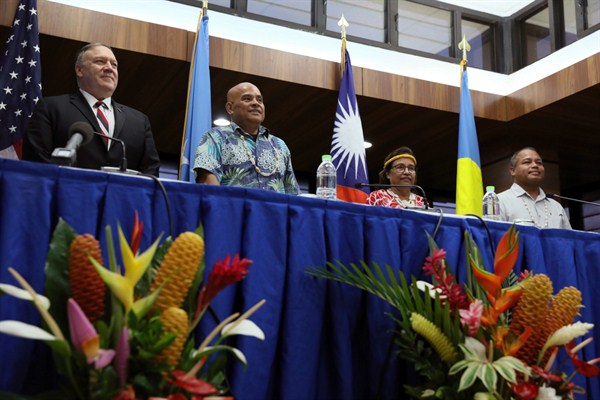Earlier this month, Mike Pompeo became the first American secretary of state to visit the Federated States of Micronesia, where he announced that Washington had begun negotiations to renew important security pacts that it maintains with several Pacific island nations. These agreements, known as Compacts of Free Association, grant the U.S. exclusive military access to the land, air and sea routes of Micronesia, as well as Palau and the Marshall Islands. China has recently tried to deepen its economic and diplomatic ties with these countries, which together are known as the Freely Associated States. In an email interview, Michael S. Chase and Derek Grossman of the RAND Corporation analyze the importance of these countries for U.S. strategy in the Asia-Pacific and the rationale for China’s engagement with them.
World Politics Review: What is the geostrategic significance of the Compacts of Free Association for the United States?
Michael S. Chase and Derek Grossman: U.S.-China competition for influence is increasingly extending to the Pacific islands, including the geostrategically vital region of the Freely Associated States, located in the North Pacific. Palau, the Federated States of Micronesia and the Marshall Islands together occupy an ocean area roughly the size of the continental United States. The unique agreements governing U.S. relations with these island nations, known as Compacts of Free Association, offer the U.S. military exclusive and secure access to the land, sea, and air routes of this enormous region. This is particularly important because their location contains sea lines of communication linking U.S. military forces in Hawaii to those deployed throughout the Pacific, as well as to allies and partners in the Asia-Pacific region. In return, the Freely Associated States receive economic assistance and a defense guarantee from the U.S., among other benefits.

